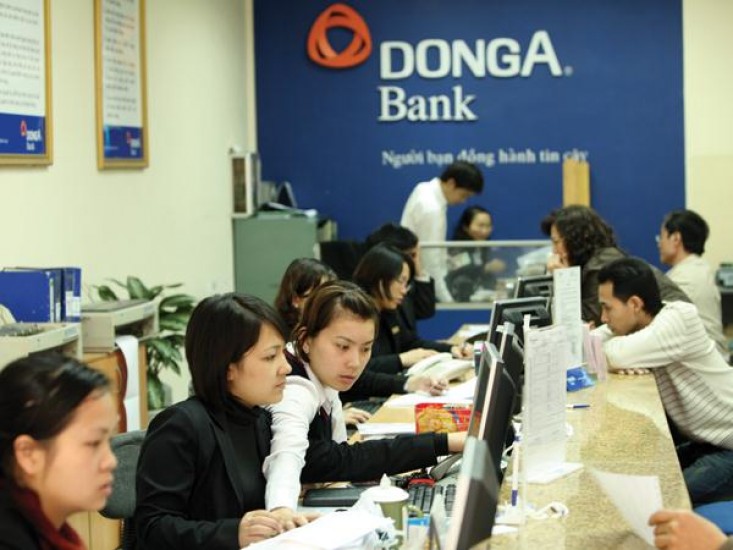|
Does Central Bank breaks the law when determining banks’
dividends?
The State
Bank of
 Many commercial banks have said they will not pay 2014’s dividends to shareholders. Maritime Bank has not paid dividends in the last two years, even though it still made a pretax profit of VND400 billion in 2013 and VND164 billion in 2014. The bank’s board of directors explained to its shareholders that the bank has to make big provisions against risks for the increasing number of non-performing loans. Maritime Bank is not alone. Dong A Bank’s shareholders, who received the dividends of 12-15 percent in previous years, have not received more since 2013. The same reason has been cited by Dong A Bank’s management board. Eximbank, which had to make a provision of VND1 trillion for the non-performing loans, accounting for 2.46 percent of its total outstanding loans (VND2.144 trillion), also decided not to pay dividends for 2014. Meanwhile, other banks want to pay high dividends, but cannot do this because of the limitations set by SBV. VIB Bank, for example, planned to pay 11 percent dividend for 2014, but it has been told by SBV to pay 9 percent at maximum. LienViet Post Bank has set the dividend at 6 percent instead of 8 percent as initially planned. The modest dividends have angered shareholders. Nam A Bank’s shareholders were shocked when they were said at the shareholders’ meeting held on April 17 that they would receive a dividend of 4 percent instead of 9 percent as they heard before. Some shareholders at the meeting accused the State Bank of “deeply intervening banks’ business” when determining the dividends banks can offer to shareholders, saying that the central bank’s move will particularly affect small shareholders. Nguyen Dang Du, a shareholder, noted that the paid dividends are unreasonably low, which are even lower than the interest rates depositors can expect. In reply, Nguyen Van Dung, Head of the HCM City Inspection Agency, denied the opinion that the State Bank violates laws when intervening banks’ dividend payment plans. Dung cited the Clause 2 of Article 59 of the Law on State Bank of Vietnam as saying that the State Bank can apply some measures, including setting limitations on commercial banks’ dividend payments, if necessary. “The State Bank does not overstep its authority when setting the limitations,” Dung said. Economists have voiced their agreement with the State Bank’s decision to set limits on dividends and gather strength to ensure banks’ safe operation. “You need to save money in case of emergency. You should not spend all the money you can earn,” an expert explained. Kim Chi, VNN |
Chủ Nhật, 26 tháng 4, 2015
Đăng ký:
Đăng Nhận xét (Atom)
Không có nhận xét nào:
Đăng nhận xét